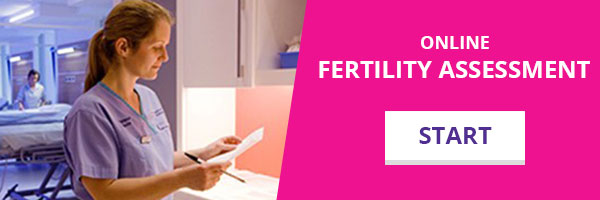Is there a good chance of getting pregnant in your mid to late 30s? And how long on average could it take to get pregnant in your 30s?
Many women will usually wait until the time’s right to try for a baby – that is, they’re settled, perhaps married or in an established relationship, and have a steady career and income – this time is usually around the 30s. It’s common knowledge that women are most fertile in their 20s; however, the good news is that the number of women in their 30s having babies has risen in recent decades.
The stats
The cold hard facts are that a woman’s fertility starts to decline from the age of 30, dropping down a little more steeply from the age of 35.
Don’t let that worry you, though, because most women will be able to conceive naturally at the age of 35 and give birth to a perfectly healthy baby.
It’s been suggested that there’s up to an 86% success rate for couples that try for a full year who are aged 30-34. However, there is a slightly increased chance of miscarriage (this rises to 20% by the age of 35) compared to when you’re trying for a baby in your 20s.
A woman in her 20s has about a 20% chance of getting pregnant during one single menstrual cycle, not per year, and by your mid-30s the chances are about 15% per cycle – so it’s not a catastrophic difference, but that’s not to say it won’t take a little longer and be a little harder.
By the age of 40, only two in five of those who wish to have a baby will be able to do so.
How long would it take to get pregnant at 35?
It’s normal for women in their 20s to get pregnant within two to three months of trying, however, for a woman in her mid to late 30s it might take six to nine months.
Although a man’s fertility remains relatively high until his 50s, the proportion of men with sperm disorders has been shown to increase with age. So this is an important factor to consider if you’re trying to get pregnant and your partner is a few years older.
A study that revealed that women aged 35-39 had a 29% of conceiving on their most fertile day also showed that if a woman’s partner was five years older, their odds dropped to 15%.
Advantages of getting pregnant in your mid-30s
Although, biologically, it’s easier to get pregnant in your 20s, it’s usually much more practical to have children in your 30s.
In your 30s, it’s likely you’ll have a higher income and a better financial cushion. You’ll also have a lot of stamina and resilience, which is crucial when it comes to parenting young children. You also still have the energy to keep up with your children and will hopefully be able to remain financially comfortable whilst taking a break from work.
What will help me get pregnant at 35?
There are a few steps you can take to give yourself the best possible chance of getting pregnant.
Consider scheduling a pre-conception appointment – your GP can review your medical history, current medications and lifestyle. Together, you can reassess or address any concerns or lifestyle factors that might hinder pregnancy at the age of 35. For example, alcohol, smoking and caffeine can have a negative impact on fertility. In addition, being overweight or underweight can interfere with hormone function and affect your fertility.
Be aware of when you’re ovulating – track your menstrual cycle using a calendar or an ovulation app, which will help you predict your most fertile days and pinpoint the best time to have unprotected sex while trying to conceive.
Don’t worry if you don’t get pregnant right away. It’s advisable to have regular, unprotected sex for up to a year. If, after a year, you’re still struggling, you should see a fertility specialist.
Fertility treatment – intrauterine insemination is a less invasive, assisted reproductive technology that may work but in-vitro fertilisation (IVF) is an excellent treatment option as well.





